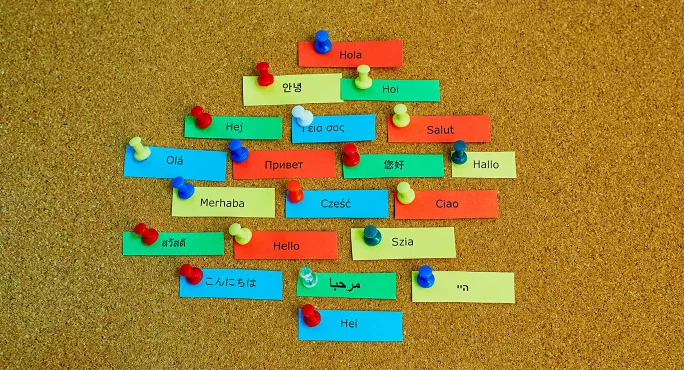
How can modern language learning be revived in Scotland?

ScotlandŌĆÖs classrooms are becoming increasingly diverse, as evidenced by the . The data highlights that nearly one in five pupils comes from a minority-ethnic background, with a growing number speaking English as an additional language.
However, the data coincides with a continued decline in the uptake of modern languages in schools. National 5 entries for modern languages fell by over 30 per cent between 2015 and 2023, while Higher and Advanced Higher entries have similarly reduced.
In an era of multicultural growth, paradoxically, the engagement with language learning is declining.
Research underscores the cognitive and cultural benefits of bilingualism and multilingualism, yet these advantages are undermined by systemic problems, including the lack of updated language policy and variability in knowledge and expertise in the primary sector.
Language skills essential in interconnected world
This issue extends beyond schools, highlighting a deeper societal problem - teachers are being asked to tackle the symptoms of a broader decline in multilingual education.
Universities across Scotland, such as Glasgow and Aberdeen, have recently discontinued modern language degrees, citing financial constraints and declining enrolment.
Yet, in an increasingly interconnected world, linguistic skills are not a luxury but a necessity - despite the common refrain, ŌĆ£Everyone speaks English anyway!ŌĆØ
- Related: What is the future for languages in Scotland?
- Edtech: Keep AI away from early years, says digital learning expert
- Reform: SQA awarding and accreditation functions ŌĆśmust be splitŌĆÖ
To truly support language learning, we must actively equip teachers with the resources and strategies to foster multilingualism.
Having , it is clear that student teachers often feel ill-equipped to deliver the policy due to a lack of focus on languages during their . However, it is also important to focus on what happens post-ITE.
Career-long professional learning (CLPL) plays a vital role in enhancing modern language experiences in classrooms by bolstering teacher confidence and enriching subject knowledge. While many educators possess strong pedagogical skills, they may lack specific expertise in modern languages, which highlights the need for targeted support.
Financial constraints often limit local authoritiesŌĆÖ ability to provide tailored CLPL, creating disparities in access. Teachers may also have to consider self-directed study through resources such as Duolingo, language clubs or peer networks.
Investing in CLPL, both structured and independent, improves outcomes for teachers and students alike - although how teachers find time for this, with all the other job-related pressures, presents a further challenge.
AIŌĆÖs potential to revolutionise language education
Integrating artificial intelligence (AI) tools into modern language lessons offers teachers innovative ways to enhance practice and address gaps in expertise. AI has the potential to revolutionise language education by alleviating teachersŌĆÖ workloads and personalising learning.
AI can help teachers by curating up-to-date, relevant resources, ensuring that languages content remains fresh and engaging. Apps such as Speak connect learners with personal AI tutors, facilitating interactive conversations with immediate feedback on pronunciation, accent and tone, a personalised approach that makes language learning more accessible.
There are some potential drawbacks, however. AI tools might not fully replicate the nuances of human interaction, such as cultural context or informal speech patterns, which are crucial in language acquisition.
Also, AI may not always offer the depth of explanation or understanding that a human teacher can provide, especially in more complex language concepts. Finally, accessibility could be a concern, as these AI tools often require reliable internet access, which may not be available to all students, particularly those in lower-income areas or with limited resources.
The eTwinning programme, run by the European Commission, offers another valuable resource for language teachers seeking international collaboration. It not only encourages cultural exchange but also gives students the chance to practise their language skills in real-world contexts.
As a teacher going through the in Scotland next year, I see the potential of eTwinning to enhance my teaching. The programme would provide my students with authentic opportunities to communicate in the target language, while also supporting my own professional development by allowing me to share resources and teaching strategies with colleagues across Europe.
To revitalise language learning in Scotland, a collaborative effort - embracing innovative teaching methods and technology - is essential.
Catriona Egerton is a student teacher studying for a masterŌĆÖs of education degree at the University of Dundee
For the latest in Scottish education delivered directly to your inbox, sign up for TesŌĆÖ The Week in Scotland newsletter
Want to keep reading for free?
Register with Tes and you can read five free articles every month, plus you'll have access to our range of award-winning newsletters.
Register with Tes and you can read five free articles every month, plus you'll have access to our range of award-winning newsletters.
Keep reading for just ┬Ż4.90 per month
You've reached your limit of free articles this month. Subscribe for ┬Ż4.90 per month for three months and get:
- Unlimited access to all Tes magazine content
- Exclusive subscriber-only stories
- Award-winning email newsletters
You've reached your limit of free articles this month. Subscribe for ┬Ż4.90 per month for three months and get:
- Unlimited access to all Tes magazine content
- Exclusive subscriber-only stories
- Award-winning email newsletters
topics in this article



